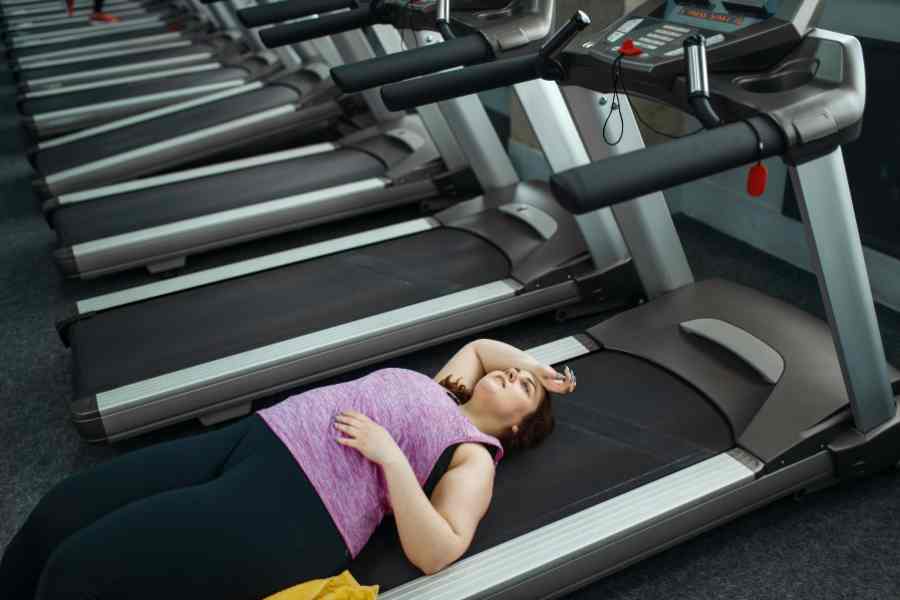The rise in obesity poses significant public health challenges, including increased risks of metabolic diseases and fertility issues. However, the common perception that lack of exercise and overeating being the cause of obesity overlooks the complex interplay of hormonal and dietary factors involved. For those pursuing natural fertility solutions in Wimbledon, a nuanced understanding of how exercise, diet and metabolic health intersect is crucial.
The Flawed Historical Dietary Guidelines
Early dietary advice stressed reducing saturated fat and cholesterol intake to protect against heart disease. The fear of fats has distorted the science of human nutrition. This excessive focus on limiting fat inadvertently spurred greater consumption of processed food, refined carbohydrates and foods high in sugar. We now know that natural fats play many beneficial roles in the body, including heart and brain health. Natural healthy fats and fat-soluble vitamins are essential for hormone balance and fertility. It’s clear that the decades-old fixation on fat reduction was scientifically unsupported and has had disastrous public health consequences.
How Obesity Disrupts Metabolic Health and Fertility
Obesity is more than just excessive weight gain. The accumulation of visceral fat around organs disrupts hormonal balance, which can increase the risk of diseases like diabetes, strokes, and infertility. Emerging research shows that at its core, obesity stems from dysregulation of key hormones like insulin and leptin that control hunger, satiety, and fat storage. Maintaining healthy levels of these metabolic hormones is critical for fertility and pregnancy.
The Role of Insulin Resistance
Diets high in sugars and refined carbohydrates can prompt insulin resistance, where cells fail to respond to insulin properly. This leads to high blood sugar, energy loss, premature ageing and excessive fat accumulation over time. Restoring insulin sensitivity is key to reversing obesity and associated metabolic abnormalities.
Obesity’s Multifaceted Impact on Fertility
Obesity reduces fertility in both women and men through varied mechanisms. In women, it commonly causes irregular periods, absent or inadequate ovulation, and hormonal imbalances. Obesity in men is associated with decreased testosterone, reduced semen quality and impaired sperm function. For couples seeking natural conception, overcoming obesity and restoring metabolic health is essential. Some may consider IVF, but studies show improved outcomes when weight and insulin sensitivity are optimized first. Achieving a metabolically healthy state – not just weight loss alone – is key for fertility, and can restore natural fertility independent of artificial reproductive techniques in many cases. Quite often, in my practice, many couples conceive without needing IVF while focusing on replenishing fertility nutrition, achieving healthy body composition, improving energy production.
The Pitfalls of Conventional Dieting for Fertility
Severely limiting calories, excessive fat reduction or eliminating entire food groups often worsens hormonal balance and fertility struggles. We must remember that supporting monthly ovulation and building embryos requires abundant energy and nutrients. Women who chronically diet, restrict intake or follow very low calorie, low nutrient diets often become malnourished. This triggers survival mechanisms that suppress fertility, reduce thyroid function and metabolism to conserve energy. As obesity can impair ovulation, having extremely low body fat causes hypothalamic amenorrhea and halted periods. Men’s testosterone also decreases dramatically on low calorie diets or extreme training regimens. For fertility, the goal should be nourishing the body and optimizing nutritional status, not drastic dieting or undereating.
The Exercise-Weight Loss Paradox
While exercise is commonly promoted for weight loss, it can unexpectedly thwart weight loss efforts. Exercise is intrinsically anabolic in nature so it increases appetite, hunger and food intake and absorption, while building metabolically-active muscle mass. The “move more, eat less” approach often fails due to this self-sabotaging effect. Only those with excellent metabolic health can exercise without increased eating. For most, especially the metabolically unfit, exercise alone has minimal weight loss impact. We must remember – exercise cannot undo the effects of a poor diet. When ramping up activity, being mindful of fuel choices is critical – exercise does not justify overeating or unhealthy food choices either. For meaningful weight loss, diet improvement must come first. You lose weight in the kitchen. You build your body in the gym. Yes, Diet Drives Weight Loss, Exercise Shapes Fitness.
Conclusion
The obesity epidemic is a complex issue, deeply rooted in historical dietary guidelines that emphasized low-fat, high-carbohydrate diets. Today, we understand that obesity is not a simple consequence of lack of exercise or willpower but a multifaceted condition influenced by hormonal imbalances and dietary choices. Reassessing common notions about obesity is imperative for supporting fertility and overall wellness. For individuals in Wimbledon seeking natural fertility solutions, acknowledging and addressing these factors is crucial. Nuanced understanding of how exercise, diet and lifestyle choices intersect to influence metabolic health and hormones enables crafting customized natural fertility solutions for each individual’s needs. With patience and persistence, couples can overcome obstacles and reach their conception goals.





